
The enemy fire was ferocious, but the attack of the combined 2nd and 3rd Battalions of the US 28th Infantry Regiment had made its way forward in the oppressive heat of 18 July 1918. Second Lieutenant Samuel I Parker, commanding one of the weary platoons that had been fighting for hours, surveyed the situation.
Parker realised that his newly established line was in a precarious position. While the front had been stabilised, at least for the moment, he could see little of the activity on the regiment’s left flank. Just then, several German machine guns began to chatter; bullets ripped into the ground, shattered tree branches and cut down several of his soldiers. The 26-year-old officer responded instinctively.
Scanning the countryside, Parker located the source of the concentrated fire, beyond the slope of a nearby hill and apparently covered by enemy infantrymen actively working their bolt-action Mauser rifles. Despite the torrent of bullets they faced, Parker ordered his men forward, toward the crest of the hill. Along the way, he noticed a group of French colonial soldiers, apparently leaderless and wandering about the battlefield. Somehow, he overcame the language barrier and convinced these troops to join his push forward.
Within minutes, the combined effort had gained the crest of the hill, but Parker was not finished. With a rush, his soldiers silenced six German machine guns concealed in a rock quarry that had unleashed the terrific enfilading fire on his previously exposed position. Along with the machine guns, Parker’s command bagged 40 prisoners. It had been an exhausting day, one of near-misses, narrow escapes and raw courage.
この記事は History of War の Issue 120 版に掲載されています。
7 日間の Magzter GOLD 無料トライアルを開始して、何千もの厳選されたプレミアム ストーリー、9,000 以上の雑誌や新聞にアクセスしてください。
すでに購読者です ? サインイン
この記事は History of War の Issue 120 版に掲載されています。
7 日間の Magzter GOLD 無料トライアルを開始して、何千もの厳選されたプレミアム ストーリー、9,000 以上の雑誌や新聞にアクセスしてください。
すでに購読者です? サインイン
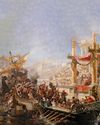
NAUMACHIA TRUTH BEHIND ROME'S GLADIATOR SEA BATTLES
In their quest for evermore novel and bloody entertainment, the Romans staged enormous naval fights on artificial lakes
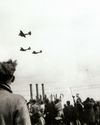
OPERATION MANNA
In late April 1945, millions of Dutch civilians were starving as Nazi retribution for the failed Operation Market Garden cut off supplies. eet as In response, Allied bombers launched a risky mission to air-drop food

GASSING HITLER
Just a month before the end of WWI, the future Fuhrer was blinded by a British shell and invalided away from the frontline. Over a century later, has the artillery brigade that launched the fateful attack finally been identified?
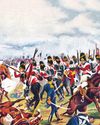
SALAMANCA
After years of largely defensive campaigning, Lieutenant General Arthur Wellesley went on the offensive against a French invasion of Andalusia

HUMBERT 'ROCKY'VERSACE
Early in the Vietnam War, a dedicated US Special Forces officer defied his merciless Viet Cong captors and inspired his fellow POWs to survive
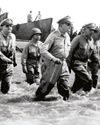
LEYTE 1944 SINKING THE RISING SUN
One of the more difficult island campaigns in WWII's Pacific Theatre saw a brutal months-long fight that exhausted Japan’s military strength

MAD DAWN
How technology transformed strategic thinking and military doctrine from the Cold War to the current day
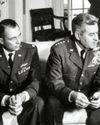
BRUSHES WITH ARMAGEDDON
Humanity came close to self-annihilation with the Cuban Missile Crisis, Broken Arrows’ and other nuclear near misses
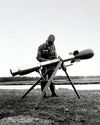
THE DEADLY RACE
How the road to peace led to an arms contest between the USA and USSR, with prototypes, proliferation and the world’s biggest bomb
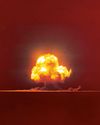
THE MANHATTAN PROJECT
Einstein, Oppenheimer and the race to beat Hitler to the bomb. How a science project in the desert helped win a war